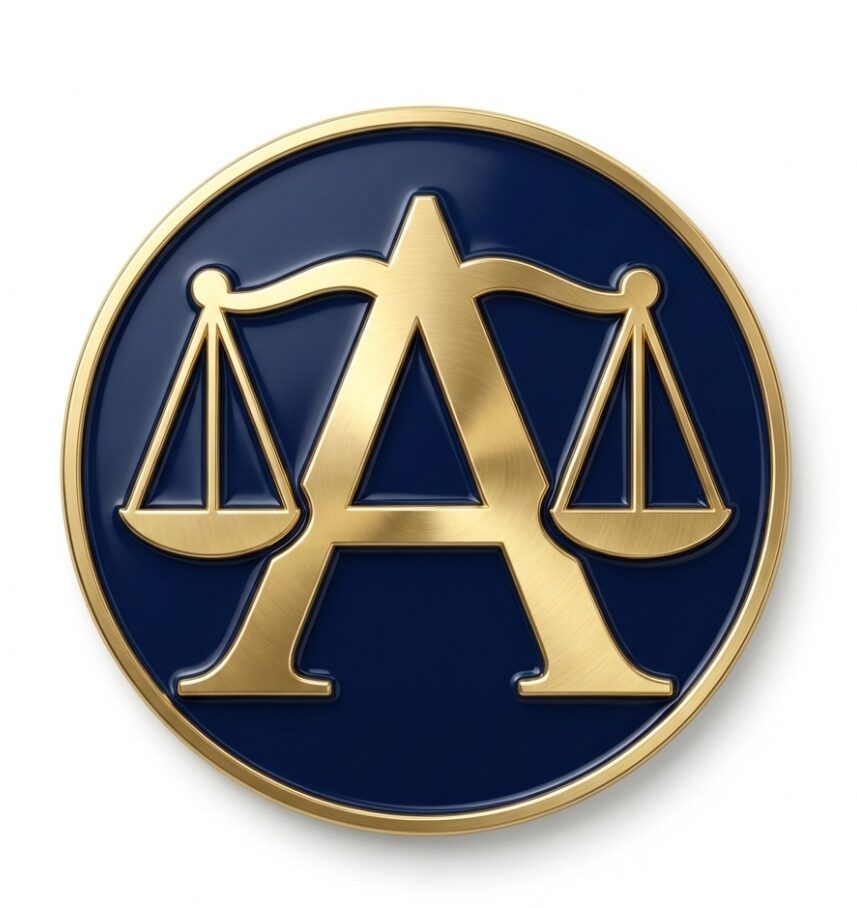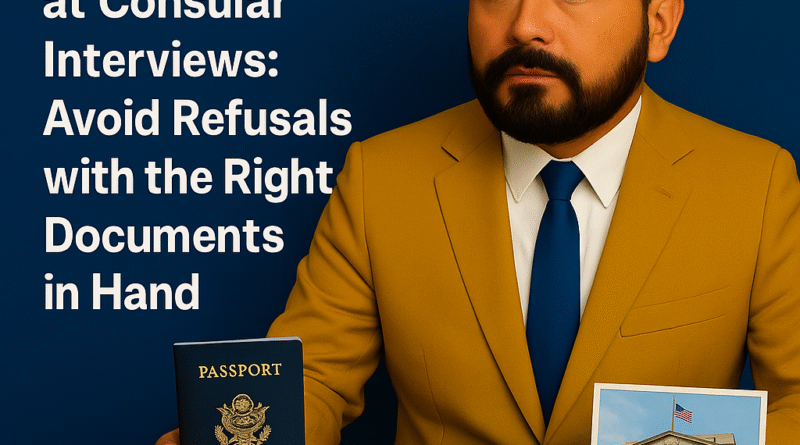Digital Originals vs Certified Copies at Consular Interviews: Avoid Refusals with the Right Documents in Hand
Understand when digital originals are enough and when certified copies are mandatory so you avoid delays, refusals, and stressful surprises at your consular interview.
If you’re preparing for a consular interview, you’ve probably asked yourself: “Can I just show the digital version on my phone, or do they really need originals and certified copies?”
With more documents now issued online—bank statements, company letters, tax records, even digital certificates—this confusion is normal. The problem is that
guessing wrong at the interview window can mean delays, administrative processing, or even a visa refusal. Let’s make this crystal clear.
- Originals / certified copies: almost always required for core civil documents (birth, marriage, police, diplomas).
- Digital documents: often accepted as supporting evidence if verifiable (secure portal, QR code, barcode, etc.).
- Rule #1: follow the specific checklist of the embassy/consulate responsible for your case.
Digital Originals vs Certified Copies: What Consular Officers Actually Look For
Consular officers are not judging your documents by how modern they look, but by how reliable and independently verifiable they are.
A digital original is a document issued natively in electronic form by an official source (government portal, bank, university, court, etc.), typically:
- Downloaded from a secure account or portal.
- Containing security features: QR code, verification link, digital seal, or advanced electronic signature.
- Traceable directly to the issuer, without needing your own editing or formatting.
A certified copy is a paper copy stamped/signed by an authorized body (notary, registry, court, or the original issuer) confirming it matches the original.
Many consulates and visa centers explicitly state that for key civil documents you must bring either the original or a certified copy—this is standard for U.S. immigrant visas,
diversity visas and many Schengen and UK processes, where instructions say “original or certified copy” for civil records and that failure to bring them can delay or affect
your case. 0
Typical reliability ranking used in practice (illustrative):
The closer your document is to the left of that spectrum (original, certified, secure digital), the safer you are at the interview.
Legal and Practical Rules: When Are Digital Originals Enough and When Do You Need Certified Copies?
Consular posts follow internal rules, treaties, and national legislation. While details vary by country, some recurring patterns help you decide:
- U.S. immigrant and diversity visas: checklist requires original or certified civil documents at the interview, even if scanned before via CEAC. 1
- Schengen visas: many states request originals + copies (passport, employment letters, proof of funds). Plain copies alone are risky. 2
- UK & others: increasingly allow digital statements or documents if issued electronically by banks/universities or uploaded via official portals, but core civil records still often must be originals or certified. 3
- eVisas / online status (e.g., UK eVisa, some residence permits): your “document” is the database record; officers verify via system or share code, not a paper copy. 4
So, a digital original is generally acceptable when:
- The consulate’s official instructions explicitly accept online/printed statements or documents.
- The file can be validated directly (QR code, verification link, reference number).
- It is a supporting document (e.g., updated bank statement) and not a core civil-status proof.
You should bring originals or certified copies when:
- Required by the consulate checklist (civil registry certificates, police certificates, court records).
- Documents are foreign and may need legalization/apostille.
- There is any doubt about whether a printed PDF will be trusted.
How to Apply This in Real Life: Step-by-Step Preparation Strategy
Use this as a practical framework to decide what to carry to your consular interview.
Further reading:
- Recognition of Common-Law Marriages Formed Abroad: How to Prove Your Relationship and Avoid U.S. Immigration Denials
- Translating Foreign Civil Records: Sworn Translators, Certifications & No-Rejection Checklist
- Foreign Same-Sex Marriages: U.S. Recognition After Obergefell + the Respect for Marriage Act “`0
- Read your specific consulate’s checklist. Search the exact embassy/consulate website responsible for your case; rules differ by location.
- Classify your documents:
- Core identity/civil docs (birth, marriage, police).
- Financial/employment/academic docs.
- Immigration status / eVisa / online records.
- For core civil documents: obtain originals or certified copies; add copies for the file.
- For financial & employment docs: print digital originals from official portals (with logo, URL, or QR) and keep them organized by date.
- For any online status (eVisa, UKVI account, SEVIS, etc.): bring printouts of confirmation pages + be ready to show the digital record or share code.
- Prepare a backup folder: for each key item: original (or certified), plus a clean printed copy and, when relevant, the digital file on your phone/USB/cloud.
- Align languages and legalization: if required, add sworn translations and apostille/legalization on originals, not only on copies.
Risk snapshot (illustrative):
Applications relying only on uncertified scans or screenshots have a much higher chance of delay or additional checks, compared to those
backed by originals/certified copies and verifiable digital records.
Technical Details and Advanced Considerations for Digital and Certified Evidence
For applicants, lawyers, and consultants building more complex cases, these technical elements matter:
- Verification features: Prefer documents with QR codes, barcodes, hash codes, or URLs that allow the officer to check authenticity instantly.
- Metadata & consistency: Dates, names, amounts, and addresses must match across all documents (DS-160/DS-260, forms, CV, contracts, statements).
- Legalization hierarchy: When a country is part of the Apostille Convention, an apostilled original usually outranks uncertified copies abroad.
- Scanned uploads vs interview originals: Many systems (e.g., CEAC, VFS, TLS) accept uploads in advance, but explicitly require you to bring the original/certified version to the interview for verification.
- Retention & privacy: Consulates often keep copies and return originals; organizing separate “keep” and “hand over” stacks avoids confusion.
Practical Snippets You Can Mirror
Example 1 – U.S. Immigrant Visa:
Bring original or certified birth and marriage certificates + police certificates, each with a photocopy.
Upload scanned versions in CEAC, but rely on the originals at the interview.
Example 2 – Schengen Tourist Visa:
Submit original passport, original employment letter on letterhead, printed online bank statements downloaded from your bank portal, plus copies of everything for the file.
Example 3 – UK Digital Bank Statements:
Use statements downloaded as PDFs from online banking (with logo, URL, and all pages), AND, if guidance suggests, have them stamped by your bank or accompanied by a bank letter.
Common Mistakes That Cause Trouble
- Showing only screenshots on a phone instead of printed/verifiable documents.
- Bringing plain photocopies of civil documents without the original or certification.
- Using edited PDFs, cropped statements, or partial pages that look manipulated.
- Ignoring apostille/legalization requirements for foreign-issued documents.
- Assuming “because it’s online” it will be accepted, without reading consulate-specific rules.
- Arriving with disorganized paperwork that slows verification and frustrates the officer.
In short, think like a consular officer: they must trust what they see.
Originals and certified copies remain the safest currency for your key records, and
strong, verifiable digital originals are powerful support when aligned with official guidance.
If you treat documentation seriously—organized, consistent, authentic—you massively reduce the risk of delays,
doubts, or denials at your consular interview.
Quick Guide: Documents for Consular Interviews
- Always check the specific checklist of the embassy/consulate handling your case.
- Core civil documents (birth, marriage, police, divorce, court records) → bring originals or certified copies, plus photocopies.
- Digital originals (bank, employment, tax, enrollment) → use if downloaded from official portals with logo/URL/QR and printed clearly.
- Uploads ≠ enough: if you upload scans (CEAC, VFS, TLS, etc.), you must still bring originals/certified copies to the interview.
- Apostille/legalization may be required for foreign-issued documents; apply it to the original, not just a simple copy.
- Translations: use sworn/official translations when required; attach them to the original/certified document.
- Organize everything in sets: originals, certified copies, translations, and copies, separated by category.
1. Can I show documents only on my phone at the consular interview?
No. Screenshots or files on your phone alone are risky. Most consulates expect printed documents and, for core records, originals or certified copies.
Use your phone only as a backup to confirm a portal or verification link.
2. When are originals or certified copies strictly required?
Typically for civil documents (birth, marriage, death, divorce, police certificates, court records) and some academic or legal records.
U.S. immigrant/DV visa guidance, for example, explicitly requires original or certified copies at the interview. 0
3. Are printed digital bank statements and employment letters acceptable?
Often yes, if downloaded directly from official systems (with logo, URL, or QR code) and not manually edited.
Some Schengen, UK and other authorities accept these as evidence, but the final decision is consular. 1
4. Do uploads to CEAC, VFS or similar replace the need to bring originals?
No. Uploads are for pre-screening and file creation. U.S. guidance is clear: every civil document uploaded must be presented in original or certified form at the interview. 2
5. How are eVisas and fully digital statuses treated?
In eVisa and digital-status systems, the “original” is the electronic record in the government database.
Bring printed confirmations, reference numbers, and be ready to show your online account or share codes if requested.
6. What if my documents are in another language?
Many consulates require certified/sworn translations into their official language or English.
The translation should clearly identify the translator and confirm accuracy, following the consulate’s rules.
7. Is a regular photocopy or self-scanned PDF ever enough by itself?
Rarely for core documents. A simple copy without certification or verifiable origin is usually treated as supporting only.
Always pair copies with originals, certified copies, or verifiable digital sources.
Legal & Policy Reference Notes
-
U.S. Immigrant & Diversity Visas: U.S. Department of State instructions require applicants to
bring original or certified civil documents to the interview, even if copies were uploaded (civil documents pages,
interview prep, CEAC upload guidance). 3 -
National Visa Center (NVC) practice: Checklists and FAQs confirm that scanned submissions do not
replace the obligation to present originals at the interview.
4 -
Schengen Area: Common guidance and recent checklists frequently require original passports and
supporting documents with copies; reliance on originals is standard practice. 5 -
UK Visa & Immigration: Supporting document guides emphasize authenticity, allow digital images
captured from originals, and expect reliable proof for financial and status documents. 6 -
General principle across systems: Consular officers must be able to independently verify documents;
therefore, originals, certified copies, apostilles/legalizations, and secure digital sources outrank plain scans or
screenshots in evidentiary value.
Treat your documentation as the backbone of your case: combine originals/certified copies for all
core records with clear, verifiable digital documents for financial and supporting evidence, always
aligned with the exact instructions of the consulate handling your application.
This material is for general guidance only and does not replace individualized advice from a qualified immigration
or legal professional, nor does it override the official requirements published by the competent embassy or
consulate for your specific case.
Do you have any questions about this topic?
Join our legal community. Post your question and get guidance from other members.
⚖️ ACCESS GLOBAL FORUM
